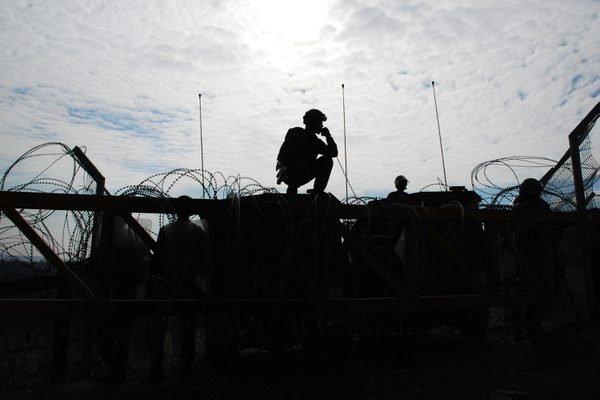Can Corporations Support Peace?
8 December 2015

Corporations have been known to exacerbate or cause conflict in areas where social tensions are prevalent. Research has focused on assisting companies to reduce their negative impacts on conflict, and to contribute proactively to promoting peace.
Economic and infrastructure development, education and training, and promoting good governance and human rights (which academics have termed structural peacebuilding) are all contributions companies can make.
Companies can also conduct ‘corporate peacemaking’. Corporate peacemaking (CPM) is defined as the political/diplomatic role of companies when they assist peace processes at the local, regional or national levels, through ‘stakeholder engagement’ and by helping to bring together parties in dispute, such as communities, government and/or armed groups for talks. This includes their active participation in peace processes, or more general support such as advocacy, lobbying or marketing for peace, or providing early warning of rising conflict.
What motivates companies to conduct peacemaking?
Companies may be motivated to assist peacemaking efforts in order to enhance their risk- management and ‘social license to operate’, as well as to increase business opportunities and earn support from communities. Further, conflict is expensive for business, causing for example, high security costs or suspended operations. Case studies identified during my research reveal several key facilitating factors that enabled CPM and led companies to engage in peace processes.
Some examples are: the leadership of a particular individual in the company, especially if s/he is a national of the country and well networked across the country’s domestic business; the ability to join peace-focused domestic business collectives that engage civil society; a conducive level of political influence and autonomy of business in the country; and economic opportunities, along with a strong public and business belief in greater economic and social benefits arising from peace.
Other facilitators include: multistakeholder peace processes that incorporate wider society rather than peace processes held between the ‘elite’ and conflict parties only; a focus on economic issues in peace negotiations which business may assist; windows of opportunity to progress peace processes such as during conflict stalemates; and existence of governmental diplomacy efforts, NGO campaigns focused on companies, and the impact of the company’s home government’s foreign policy (e.g. if it pursues a policy of constructive engagement).
Existing business organisations can facilitate CPM but face barriers that business collectives established primarily to support peace processes (especially those that take a low profile) do not face. Other facilitating factors include the company’s alignment to CSR/human rights norms, policies and practices; corporate characteristics that increase its willingness/ability to take action (e.g. long-term, on-the-ground operations); and often, confidentiality for CPM.
Should companies act alone or with others?
It is clear that companies can be effective if they work with others. CPM case studies reveal five types of corporate actors who promote peacemaking: a ‘business personality’ (like Richard Branson who co-established The Elders which involves well-known political figures in undertaking peacemaking activities); a ‘sole company’ operating on its own (e.g. Lonrho in Mozambique); a ‘TNC-domestic business collective’ (e.g. the Ideas for Peace Foundation, Colombia); a ‘foreign business collective’ (e.g. the International Council of Swedish Industry supporting peacemaking in Colombia); and a ‘global business collective’ (e.g. the United Nations (UN) Global Compact and its Business for Peace platform).
Collective action provides credibility and allays suspicion. Even ‘sole company’ or ‘business personality’ activities usually require support of and assistance from relevant civil society actors committed to the peace process. Collectives, working with peace and conflict resolution experts/organisations, and community organisations representing societal groups including women and youth, could encourage well-structured, inclusive peace processes. Here is an area where the Global Compact’s Local Networks could play an effective role.
Whether companies should act in the public sphere or keep their activities private is an important consideration and depends on circumstances. Quiet diplomacy is conducive to corporate actors undertaking shuttle diplomacy for instance; an inherent strength of business people is they are usually less visible than politicians, allowing them to bring conflict parties (informally) together to find solutions. Most companies prefer to remain out of the spotlight. Collective business action allows companies to be open about their membership and support, but allows them the opportunity to remain in the background. Corporate diplomacy can however, include more public efforts such as public advocacy promoting the benefits of peace.
What steps could companies take to ensure they conduct best-practice CPM?
Companies are profit-making organisations, and it is inevitable they will face criticism from some, accusing them of acting in self-interest. It is imperative that companies ensure they are not causing or exacerbating conflict (such as by enacting conflict-sensitive business practices). Hence, a company can shift across a continuum of approaches to conflict-affected areas. A company moves from a compliance with law only approach, to building a CSR policy approach (which can be applied in peaceful societies too and does not necessarily consider the conflict context), then onto a do-no-harm strategy (which considers company–conflict dynamics, and requires conflict-sensitive business practices), and finally, towards a more positive, proactive structural peacebuilding and eventually, peacemaking approach.
When conducting CPM, companies should recognise that business interest is intertwined with national interest. CPM can promote peace processes that align with the human rights values of dignity, participation, inclusion, protection and accountability, promoting co- determination, tolerance and cooperation. This also enhances the impartial nature and credibility of corporate efforts. Corporate actors can also promote, or establish, mechanisms for reducing conflict that adhere to ‘conflict resolution’ principles which aim to counter the potential influence of power politics and self-interest on outcomes.
A collective of international and domestic businesses, the South African Consultative Business Movement, was committed to the values of democracy and peace, inclusive consultation, conflict resolution skills, and a national rather than narrow interest-based agenda. This gave it the credibility required to act as a facilitator in the (1990s’) peace/constitutional negotiations.
Finally, most guidance outlines how companies can support structural peacebuilding (e.g. ‘Guidance on Responsible Business in Conflict-affected and High-risk Areas’ by the UN Global Compact and Principles for Responsible Investment). However, research is increasingly focusing on CPM (corporate engagement in peace processes) in order to provide guiding principles, basic aspects of best practice, and advice on the many ways that companies can contribute to, or more indirectly support, peace talks. Further, strategies that enable business to support peace globally, going beyond ‘developing countries’ to include countries usually deemed more ‘peaceful’, will benefit companies, helping them align with changing global social expectations and needs.




